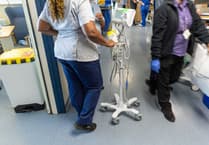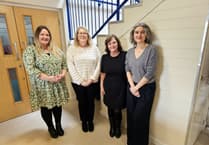The initiative, known as the Riverfly Partnership, is part of a national project monitoring the long-term health of our rivers and helps to pick up pollution incidents.
The project was set up on the Torridge two years ago and in that time 50 volunteers have collected 290 samples; 12% of the national total of 2,500. There are 50 active sites in the catchment which is six per cent of the national total.
Nick Muir, one of the Riverfly volunteers, said why he devotes some of his spare time to the project: ‘As a life-long fisherman, Riverfly was of interest to me straight away. I now sample three sites on the River Mere and am continually amazed at what creatures I find in my nets. I meet local people who are interested in what I do, they sometimes supply me with a welcome cuppa and like me, they are all pleased that people are coming together to look after our wonderful rivers.’
The Riverfly project was brought to the Torridge through the North Devon Biosphere’s Nature Improvement Area Project led by the Devon Wildlife Trust.
Matt Edworthy from the Biosphere said: ‘We initially thought we might get a dozen volunteers, so 50 has been amazing. It is a real demonstration of the connection so many people have with the environment in this area and shows how citizen scientists can really play a part in looking it after it for all of us. It really is the Biosphere in action.’
Riverfly works because the types of invertebrate found in streams and rivers indicates a lot about their ecological health. The presence, absence and abundance of certain species provides vital clues as to what is going on beneath the water’s surface and the monthly counts by the volunteers provide a long-term picture across the catchment.
Some volunteers have also been working with Izzy Moser, project officer for the Biffa Award funded ‘Restoring Freshwater Mussel Rivers in England’ national project, led by the Freshwater Biological Association. Their survey results are being used to inform the work to improve the quality of local rivers and streams to the direct benefit of this endangered species.
The Riverfly project has been supported with funds from the North Devon Fisheries Local Action Group, and Torridge District Council.


